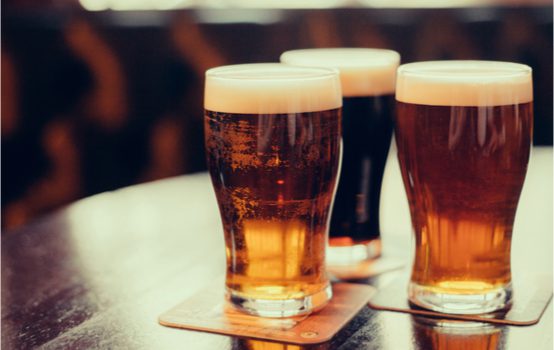Indiana Doubles Down on Warm Beer

Indiana lawmakers recently announced that they plan to study the state’s outdated alcohol laws this summer with an eye toward reforming them for the 21st century. While this is an encouraging sign, the road that led to this legislative soul-searching involved a missed opportunity to reform the state’s infamous “cold beer law” and underscored the cronyist forces Indiana reformers are up against.
Although nearly every state has outdated and arcane alcohol laws, Indiana’s cold beer law stands out as one of the most bizarre. In its present form, state law allows only liquor stores and restaurants to sell carryout beer that is either “iced or cooled.” Gas stations and corner convenience stores are relegated to selling room temperature brews. Like many antiquated state alcohol laws, this rule grew out of the aftermath of Prohibition. After the 21st Amendment repealed Prohibition, Indiana passed the 1935 Liquor Control Act, establishing various types of retail licenses for alcohol. These classifications evolved over time to create a distinction between retailers who could sell cold beer and those who could not.
The convenience store chain Ricker’s appeared to find a loophole in the law last year by obtaining restaurant permits for two of its stores after they also started selling reheated burritos and installed seating for diners. With these restaurant permits in-hand, the stores began selling refrigerated beer.
Rather than viewing this development as a sign of a woefully outdated law, Indiana lawmakers were up in arms. They vowed almost immediately to push legislation closing this loophole and followed through when Gov. Eric Holcomb recently signed a bill targeting Ricker’s newly obtained restaurant permits. The legislation mandates that all restaurant permittees selling cold beer must sell 60 percent of their alcohol for on-premise consumption (rather than carryout), but it grandfathers in permit holders from before Nov. 1, 2016. Ricker’s received its restaurant permits just a few weeks after the cutoff date.
Making the targeted nature of this new legislation even more obvious, the 60 percent on-premise threshold exempts breweries, wineries, hotels and other entities that potentially would have been affected. Because the two Ricker’s locations are convenience stores and sell mostly carryout alcohol, they will lose their ability to sell cold beer come April 2018.
As Ricker’s co-founder Jay Ricker put it following the vote: “I’m shocked at how it looks like it’s targeted to us. They’re going to yank our licenses, it appears, down the road. Everybody else pretty much gets accepted but us.” Ricker also noted that the sudden change in the law would mean the tens of thousands of dollars he spent acquiring the permits and training employees all would go to waste.
State legislators faced heavy pressure from alcohol-retailing interests bent on eliminating Ricker’s permit loophole. Incumbent liquor store owners pushed the targeted bill in an effort to protect the value of their current permits, which can auction for as much as $500,000. These retailers warned the restaurant permit loophole would lead to “thousands” of stores selling cold beer in the state. They also claimed it would spike underage access to booze, based on the assumption that convenience store clerks would not be sufficiently trained to spot fake IDs.
According to an Associated Press analysis, liquor-store interests have contributed more than $750,000 to Indiana lawmakers since 2010, underscoring the power they were able to exert in the state capitol. One lawmaker even stated that voting to revoke Ricker’s ability to sell cold beer “goes against every grain in my free market body,” but then turned around and voted for the legislation anyway.
Upon signing the new law, Gov. Holcomb called for a review of the state’s alcohol laws and legislators have promised to consider statewide reforms to drinks laws during the next legislative session. Indiana lawmakers should follow through on this promise, as the state has many alcohol laws in need of reform. In addition to the cold beer law, Indiana is one of the few states that still prohibits almost all forms of Sunday alcohol sales—including carryout sales of beer, wine, and distilled spirits.
Rather than spending their time defending anachronistic laws and targeting convenience store that want to sell cold beer, Indiana should fix its booze laws. After all, no one likes warm beer.
C. Jarrett Dieterle is a fellow at the R Street Institute in Washington, D.C., and edits the website DrinksReform.org.
Comments